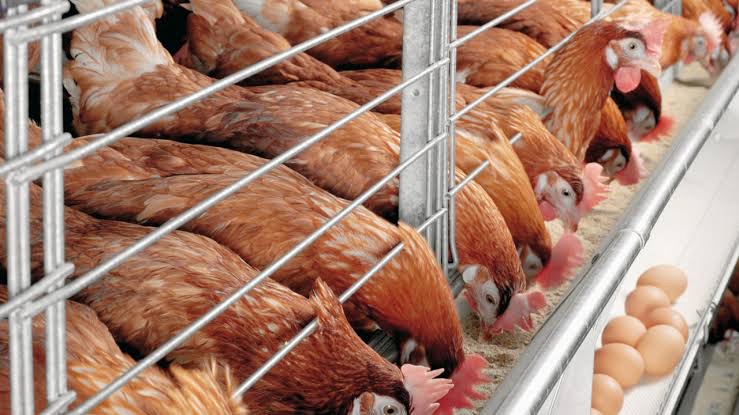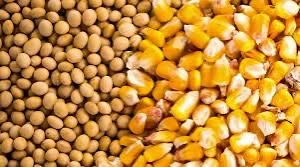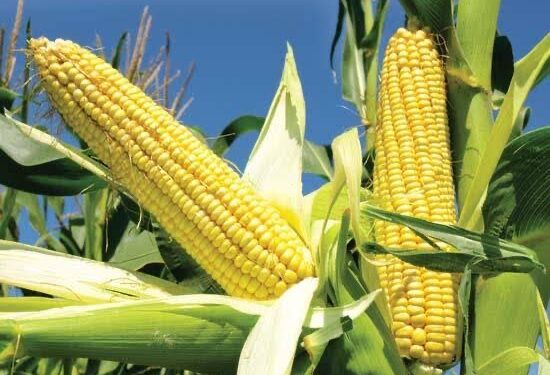Soya beans and maize are two important raw materials in the production of poultry feed. According to Reporters’ market research, maize is currently selling for 910,000 naira per tonne, up from 480,000 naira per tonne in 2023.
This equates to a price increase of 89.6 percent in one year. Similarly, a tonne of soya beans is currently selling for 714,000 naira, up from 425,000 naira in the same period in 2023. This equates to a price increase of 68 percent.
Prices of maize and soya beans are high due to uncertainties and reduced productivity due to climate change. As a result, fewer people are getting into the poultry industry due to high operational costs and low consumer purchasing power.
Nigeria is the second largest maize producer in Africa but is experiencing a major maize shortage. According to experts, the continued rise in the prices of these two main poultry feed ingredients poses a major threat to the poultry industry and the country’s food security.

President of the Poultry Association of Nigeria (PAN), Ezeobiora, told Journalists, that the insecurity has caused maize production in the country to fall by 50 percent within a year. Current production is estimated at 7 million tonnes.
He noted that the poultry industry alone requires over 4 million tonnes of maize per year to meet farmers’ needs.
Ezeobiora noted that record prices for maize and soybean have caused the industry value to shrink by 45 percent from 10 trillion naira in 2022 to about 5.5 trillion naira now.
He further said that falling demand for eggs, supply chain disruptions, high feed prices, foreign exchange shortages, avian influenza, and rising inflation are threatening the survival of some farms.
He called on the Federal Government to address the issue of insecurity so that farmers could return to their farms and grow enough maize for the entire country. According to PAN, the industry has lost 25 million jobs in four years due to ongoing challenges.
According to data from the National Bureau of Statistics (NBS), the poultry industry growth rate fell by 23.29 percent in the first quarter (Q1) of 2024, following a decline of 30.57 percent in the same period in 2023.
Markets await the impact of the central bank’s dollar selling as the naira extends its losing streak to five days. Experts say the continuing decline reflects the difficult situation in the industry.
Onallo Akpan, a poultry farmer in Abuja, said demand for eggs and poultry products continues to decline as inflation has eroded consumer purchasing power, forcing many consumers to limit their purchases.

“From exchange volatility to the high cost of feeds, to supply chain disruption, to smuggling and the current low consumer demand induced by accelerating inflation and naira scarcity, it has been a chain of problems for the poultry industry since 2020,” said Akpan, who is also the director-general of PAN.
“Lots of farms are closing down owing to these challenges,” he said, noting that the government’s recent move to import maize to lower prices is not enough to support the industry given the various challenges farmers face.
According to experts, the poultry sector in Nigeria is one of the sub-sectors that generate the most jobs in the country’s agriculture sector.
Report has it that frozen chicken is now selling for 5,000 naira per kilogram (down from 3,600 naira a year ago), and a crate of eggs for 5,500 naira (down from 2,600 naira in January).
Ahmed Popoola, FA Director General Popoola Farm Project, said farmers’ production costs have doubled since President Bola Ahmed Tinubu removed the fuel subsidy.
“Prices of feed, vaccines, medicines, and everything we need for poultry farms continue to rise every month,” Popoola Ibrahim Kabiru, president of the All Nigerian Farmers Association, said catastrophic problems in the poultry industry forced one of his poultry farms in the north to close down last year due to losses.
His situation is similar to that currently experienced by millions of poultry farmers across the country.
As the price of poultry products continues to rise, it is becoming difficult for many Nigerians to afford eggs and chicken.
This threatens the country’s protein consumption and the government’s campaign to encourage children to eat eggs daily. Eggs are an important source of protein, especially for low-income earners, but are now out of reach for the poor.
The country’s per capita daily protein intake is estimated at 45.4g, against the Food and Agriculture Organization’s (FAO) minimum of 53.8g. Many Nigerian families are now unable to afford eggs as prices continue to rise, farmers say, and the gap in per capita protein intake will continue to widen and the number of malnourished people will increase.































